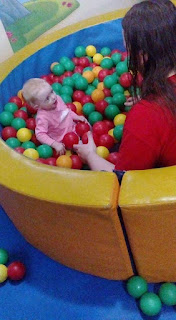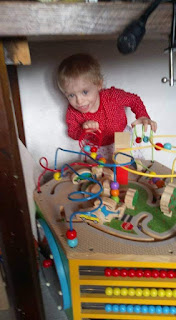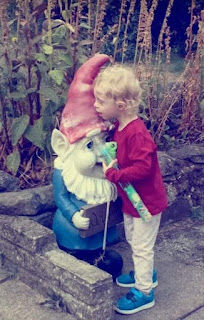What a journey!
Early years education is a journey to travel together, following the cues of your child.
It all begins with conversation. Whilst they're in the womb, you can read to them, sing, and share about your day to help create a bond before birth.
This conversation and sharing of information should always continue. They concentrate on their survival skills and adjust to life outside the womb. Bonding is the key here.
The first books are often black and white picture themed and then progress to coloured ones, portraying nursery rhymes and first word and picture books.
This is the time to start the emotional bonding with books, having bedtime stories, and afternoon snuggles on the sofa or in a den. Singing nursery rhymes, whilst they're playing with balls, and sensory, busy and interactive noisy toys are key for the start of learning cause and effect and using their hands to explore their world and being introduced to musical instruments. Keep talking, describing and explaining their world to them, bringing in the concepts of colours, shapes, animals, and names of items.
This transfers from the home to social environments such as soft plays, library rhyme times, playgroups, parent and child groups, and playgrounds, and nurseries, however it should begin in the home and remain a constant within the home.
Imagination comes into play, and roleplay remains a vital part of their learning journey for years ahead, growing with them, preparing them for future drama and story creations.
Growing up outside in nature and experiencing the seasons and all its bountiful resources from the very beginning has amazing benefits, mentally, emotionally, and physically. This paves the way for a love of the Earth, learning about weather and seasons, habitats, and animals.
Arts and crafts are introduced, so much fun and learning to be found, with a natural progression of transferable skills.
Play should, at this point, include lots of opportunities to strengthen the hand muscles in training for future writing. These include playdoh, playing outside, building, and construction toys.
The exposure to books should have been continually growing, and they hopefully have their favourite story books. Soon, they'll start re telling the story and perhaps acting it out. You can encourage this with puppet style books.
Letters and numbers can be introduced via wooden puzzles, magnets, and foam varieties. There can be more emphasis on colours and shape, alphabet families, which paves the way to recognising letters out of context and sight words.
If you allow screen time, YouTube educational channels are amazing, catered towards 2 year olds onwards, helping to teach the early years education themes, through movement, music, and song. The Amazon Fire tablet, aimed for 4-7year olds, holds an incredible variation of educational games and apps that can really help to introduce academic subjects in an engaging manner that preludes to learning curriculums such as Reading Eggs.
This play progression runs alongside them, as they are also learning their gross and fine motor skills, life, social and personal skills.Reading, writing, spelling, science, and basic counting may have been introduced. It purely depends on every individual.
It sounds a lot, but it does follow on naturally, and this has a span of years before and after official schooling begins.
I purposely have not mentioned ages here as this automatically can lead to comparison, expectations, and pressure. It's more following their cues and providing a consistent learning environment that continually grows with your child's development.




Comments
Post a Comment